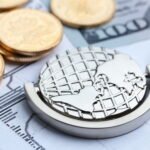Introduction
Economic policy plays a crucial role in shaping the financial landscape of nations. It encompasses a range of decisions and actions taken by governments and central banks to influence a country’s economic health. Understanding economic policy is essential for anyone interested in finance, investment, or simply how national and global economies operate. In this comprehensive guide, we’ll explore the key concepts of economic policy, its impacts on the economy, and emerging trends that are set to influence future financial landscapes.
What is Economic Policy?
Economic Policy refers to the set of actions and decisions made by governments and central banks to manage and influence a nation’s economic performance. It includes a variety of measures aimed at achieving specific economic goals, such as stable growth, low inflation, and high employment. Economic policy can be broadly categorized into two main types: fiscal policy and monetary policy.
Fiscal Policy
Fiscal policy involves government spending and taxation decisions. It is used to influence economic activity by adjusting the levels of government spending and tax rates. The primary objectives of fiscal policy are to manage economic growth, control inflation, and reduce unemployment. Key tools of fiscal policy include:
- Government Spending: This involves expenditures on public services, infrastructure projects, and social programs. Increased government spending can stimulate economic growth, while reduced spending can help control inflation.
- Taxation: Changes in tax rates can influence consumer spending and business investment. Lower taxes can boost economic activity, while higher taxes can help cool down an overheating economy.
Monetary Policy
Monetary policy is managed by a country’s central bank and involves controlling the money supply and interest rates. The goal of monetary policy is to ensure price stability and support economic growth. Key tools of monetary policy include:
- Interest Rates: Central banks set benchmark interest rates that influence borrowing costs for consumers and businesses. Lower interest rates can encourage borrowing and investment, while higher rates can help control inflation.
- Open Market Operations: This involves buying or selling government securities to influence the money supply and interest rates.
- Reserve Requirements: Central banks can adjust the reserve requirements for commercial banks, affecting the amount of money available for lending.

The Impact of Economic Policy
Economic policy decisions have far-reaching effects on the economy and can influence various aspects of daily life. Understanding these impacts can help individuals and businesses make informed financial decisions.
Inflation and Deflation
Economic policies play a critical role in controlling inflation and deflation. Inflation occurs when the general price level of goods and services rises, reducing purchasing power. Central banks use monetary policy tools, such as adjusting interest rates, to control inflation. On the other hand, deflation, characterized by falling prices, can be addressed through fiscal policy measures like increased government spending.
Employment and Unemployment
Fiscal and monetary policies can impact employment levels. Expansionary fiscal policies, such as increased government spending, can create jobs and reduce unemployment. Similarly, lower interest rates can encourage businesses to invest and hire more workers. Conversely, contractionary policies aimed at reducing inflation may lead to higher unemployment in the short term.
Economic Growth
Economic policy decisions influence the overall growth rate of an economy. Expansionary policies, such as tax cuts and increased government spending, can stimulate economic growth. Conversely, contractionary policies, such as higher taxes and reduced spending, can slow down economic activity.
Emerging Trends in Economic Policy
As the global economy evolves, new trends and challenges are shaping economic policy decisions. Staying informed about these trends can provide valuable insights into future economic conditions.
Digital Currencies and Central Bank Digital Currencies (CBDCs)
The rise of digital currencies and the development of Central Bank Digital Currencies (CBDCs) are transforming the financial landscape. CBDCs are digital versions of national currencies issued by central banks. They have the potential to enhance financial inclusion, improve payment efficiency, and provide central banks with new tools for monetary policy.
Climate Change and Sustainable Economic Policies
Climate change and environmental sustainability are becoming central to economic policy discussions. Governments are implementing policies to address climate change, promote green technologies, and transition to a more sustainable economy. These policies aim to mitigate the economic impacts of climate change and support long-term economic resilience.
Globalization and Trade Policies
Globalization and trade policies continue to shape economic policies worldwide. Trade agreements, tariffs, and international relations influence economic performance and investment opportunities. Understanding the impact of globalization and trade policies can help businesses and investors navigate the complexities of the global economy.
Conclusion
Economic policy is a dynamic and multifaceted field that influences every aspect of the economy. By understanding the key concepts of fiscal and monetary policy, the impacts of policy decisions, and emerging trends, you can gain valuable insights into how economic policies affect financial markets and your personal finances. Staying informed about economic policy developments is essential for making informed investment decisions and navigating the complexities of the global economy.







The Impact of Economic Policy on Personal Finance: Understanding Key Decisions and Their Effects - Investsu
agosto 30, 2024[…] aspects of economic policy, its implications for personal finance, and strategies to navigate these impacts […]